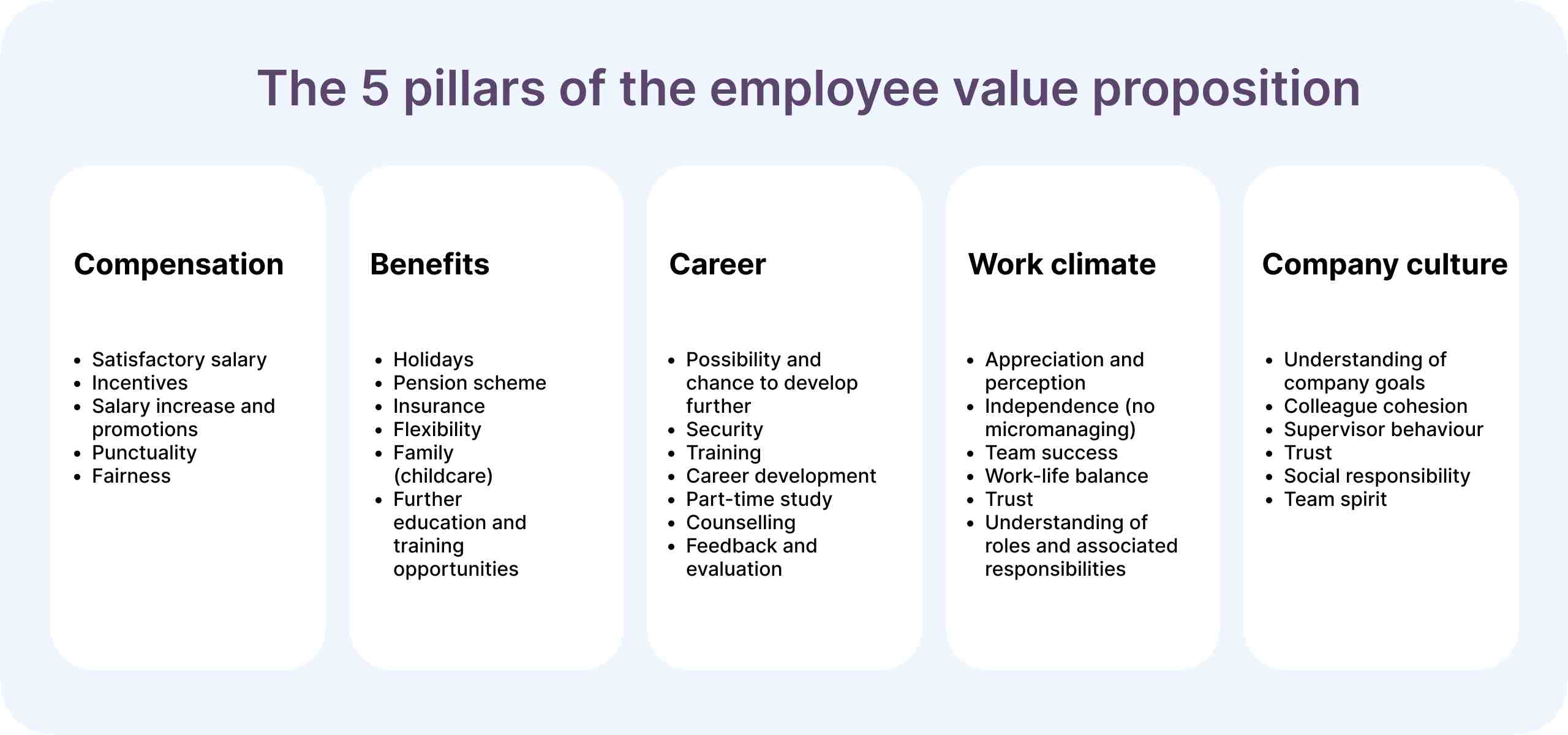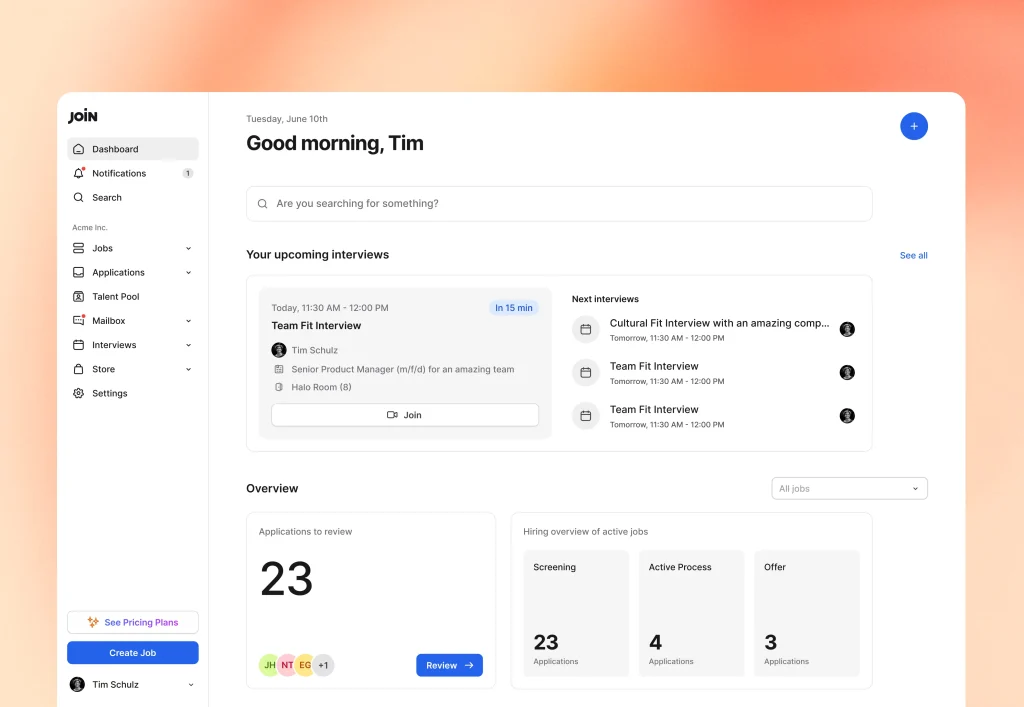How to develop your employee value proposition (EVP)
The employee value proposition (EVP) is the value proposition that employers make to employees. It consists of a series of offers that a company provides in return for the skills, abilities, and experience of an employee.
Table of contents
Employers across the world are faced with an unprecedented labour shortage across industries. In the German labour market alone, 1.9 million jobs were unfilled in August 2022. With so many positions to fill, it is more important than ever that companies position themselves as attractive employers in the labour market, and appeal to their candidates. And that’s where a unique employee value proposition (EVP) comes in.
One of the essential cornerstones of successful recruiting is the development of employer branding. Strengthening the employer brand is not only crucial for employee recruitment, but also for employee retention.
Finding the right talents and then retaining them is proving to be increasingly difficult for many companies due to the shortage of skilled workers, the Great Resignation, and the current time of uncertainty.
Top talent can only be attracted and retained by investing resources in strengthening your employer brand. For this, the employee value proposition is an important foundation.
But how do you develop a successful EVP? We’ll explain it to you below!
- What is an EVP actually about?
- What does an EVP consist of?
- Which factors should be considered when developing an EVP?
- How do you define your EVP?
- How to strengthen your employer brand
What is an employee value proposition actually about?
As mentioned earlier, an employee value proposition encompasses the value proposition employers make to their existing and prospective employees in return for their work.
The EVP is an employee-focused approach that is aligned with existing and anticipated workforce planning strategies, as it is developed for both existing employees and potential future employees.
The goal of an EVP is to attract and retain talent that supports and advances the company’s corporate value proposition.
To achieve this goal, the EVP must be unique, relevant, and compelling. This is the only way employers can stand out from the competition.
Well, you’re now surely asking yourself:
What does an EVP consist of?
As a cornerstone for successful employer branding, an employee value proposition can also be developed by involving an external agency.
However, if the HR budget does not allow for further expenditure towards the end of the year, a first (basic) proposition can also be set up on one’s own or within a few meetings with the team.
Most companies face two main problems when dealing with the development of the EVP:
- They struggle to differentiate themselves from the competition. Differentiation, however, is crucial in some industries if a company wants to stand out.
- Their branding is attractive, but it doesn’t reflect reality.
We will discuss below which factors and issues you should pay particular attention to.
Which factors should be considered when developing an EVP?
A successful employee value proposition should always be built on the following five pillars: Compensation, benefits, career, work climate, and company culture.

How do you define your EVP?
For a successful EVP, always keep the employees and the target groups in mind. There are a variety of approaches to finding out what your talent wants from you as a great employer.
Step 1: Determine the status quo
A good starting point would be to conduct employee surveys and dive into the information you have. Do you already know what your employees value about the company? Can you already answer some aspects of the five pillars listed above?
The data from employee surveys will tell you what is already working successfully and which aspects of the factors can still be developed. It makes sense to keep getting feedback from your employees.
Step 2: Test the employee value proposition
When developing an EVP, find out what is important to the different people you want to target.
Above all, for your EVP to be successful, it must be credible. Continuous testing will ensure that all categories are perceived as appealing by your employees and potential new employees.
This testing should be done with internal staff, as well as other stakeholders, to see what changes need to be made to the EVP to appeal to different audiences.
Step 3: Engage employees
Only when a company’s EVP matches what an employee values in his or her work do you have a win-win situation. Employers can then count on motivated and committed employees. And employees will find their work meaningful and fulfilling.
Strengthening your employer brand is the key to retaining employees and attracting the right talent.
How to strengthen your employer brand
Developing your employee value proposition forms the basis for successful employer branding. In addition to defining corporate benefits that your employees really want, other areas play an important role in your employer branding as well.
Our Recruitment & HR Blog has even more tips for you.
Mia Worts
Mia Worts is a Junior Content Marketing Manager at JOIN. Finding solutions for companies to increase their employee retention in a sustainable way is one of her favorite topics to write about. Not only does she care about the future of work but also about creating a sustainable life aside from the job world by cooking animal-free foods and choosing sustainable alternatives.


